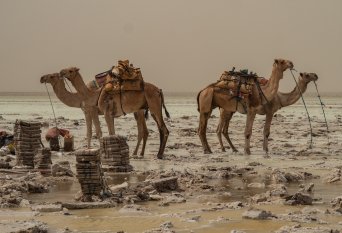- About
- Topics
- Picks
- Audio
- Story
- In-Depth
- Opinion
- News
- Donate
- Signup for our newsletterOur Editors' Best Picks.Send
Read, Debate: Engage.
| topic: | Peace and Reconciliation |
|---|---|
| located: | Ethiopia |
| editor: | Bob Koigi |
The recent African Union-mediated peace deal between Ethiopian government forces and rebel Tigrayan forces to end the two-year protracted conflict has come as a welcome relief to millions of citizens who have faced untold suffering in the course of the conflict.
The offensive against the Tigrayan forces by the government has seen thousands of civilians killed, millions displaced from their homes and tens of thousands at the brink of starvation.
The World Health Organization recently put the figure of those in need of humanitarian aid in northern Ethiopia at 5.2 million, including 3.8 million who require urgent medical attention. The situation has been aggravated by the refusal of the warring factions to allow humanitarian aid to reach the worst affected regions.
Civilians and aid workers have, in the course of the conflict, reported attacks, destruction of property, rape, mistreatment in displacement camps and other atrocities in the hands of both parties of the conflict.
Doctors describing the severity of the situation narrated running out of basic medical supplies such as therapeutic food, vaccines and insulin, even as people died of preventable diseases. This, as U.N human rights investigators noted that the government was using the starvation of civilians as a weapon of war.
The Ethiopian people have paid the ultimate price in the two-year conflict. This is why the new peace deal must be followed to the letter. The two warring parties must implement it in word and deed and the African Union and the international community must hold them to account should they backtrack on their promise to silence the guns and foster lasting peace. In the immediate future, humanitarian aid should be allowed to reach those who desperately need it and the Ethiopian people allowed to go back to living in peace.
Photo by Lesly Derksen

